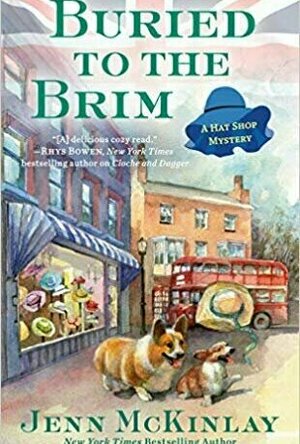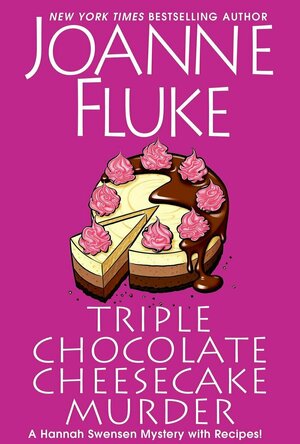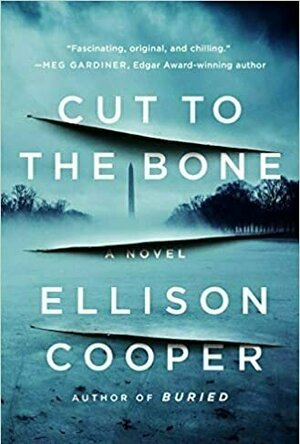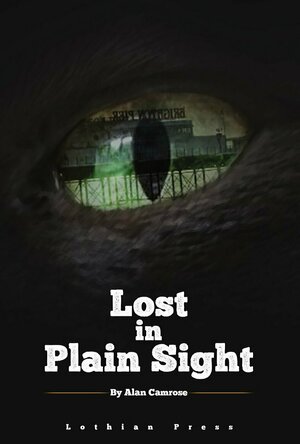Search
Search results
Mark @ Carstairs Considers (2474 KP) rated Buried to the Brim in Books
Jan 29, 2020
Brimming with Fun, Doggone It!
Cousins Scarlett and Viv have an unusual new client for their hat shop. Betty Wentworth, Scarlett’s fiancé Harrison’s aunt, is about to enter a dog show with her dog, Freddy, and she is hoping that a top hat will launch him from second place to first place this year. At first Viv, who designs the hats, is reluctant, but soon she is on board, and everyone is delighted with the results. However, the contest weekend gets off to a rocky start during the cocktail party that kicks things off when Betty gets into an argument with Gerry Swendson, the owner of the dog food company that sponsors the show. The next morning, Freddy is the one to find Gerry’s very dead body. With the police looking at Betty, Scarlett begins digging in, trying to figure out who else had motive. It quickly becomes apparent that this dog show is far from cute. But who committed murder?
It’s been a couple of years since the last book in this series came out, and it was wonderful to catch up with these old friends. Some time has passed for them as well, but the relationships were as great as ever. We saw plenty of the supporting characters and I loved every minute of it. The mystery was just as strong, with plenty of suspects and a fantastic ending. I did find one thing near the climax pushed me out of the book and I didn’t remember a few instances of very mild swearing in earlier books, but both are worth noting only in passing. The running gags involving puns were always one of my favorite things in the series, and it is as delightful as ever here. And the dogs! There are some very cute moments with the dogs here. Fans of the series will be delighted to get to revisit these characters.
It’s been a couple of years since the last book in this series came out, and it was wonderful to catch up with these old friends. Some time has passed for them as well, but the relationships were as great as ever. We saw plenty of the supporting characters and I loved every minute of it. The mystery was just as strong, with plenty of suspects and a fantastic ending. I did find one thing near the climax pushed me out of the book and I didn’t remember a few instances of very mild swearing in earlier books, but both are worth noting only in passing. The running gags involving puns were always one of my favorite things in the series, and it is as delightful as ever here. And the dogs! There are some very cute moments with the dogs here. Fans of the series will be delighted to get to revisit these characters.
Kristy H (1252 KP) rated All the Best Lies in Books
Mar 19, 2020
The third book in the Ellery Hathaway series finds FBI Agent Reed Markham taking on a particularly personal case--his birth mother's murder. His mother, Camilla, was stabbed to death over forty years ago while baby Reed was nearby in his crib. Her killer was never found. It's a cold case now for the Las Vegas Police Department. Reed asks for Ellery's help and the two travel together to Las Vegas to search for answers. But Reed soon learns something shocking about his past, leading him to add someone incredibly close to him to his list of suspects. In Vegas, that list soon grows, and they realize that the killer--even after all these years--isn't happy with Reed and Ellery stirring things up.
This was another stellar entry in this series. I absolutely love Ellery and Reed, and it was great seeing Reed work on a case that meant so much to him. It reminded me of an early Harry Bosch in Michael Connelly's books, when he tries to track down his own mother's killer. Both Reed and Ellery deal with family issues in the book. As always, there is sizzling chemistry between the two. Their relationship just gets better and better, as each struggles with their own problems, and they grow closer and closer.
There's a lot of focus on Reed here, of course, as we learn more about both his mother and his adopted family, the Markhams (Reed was adopted by Senator Angus Markham from Virginia). His mother's case is mesmerizing, and there is no shortage of suspects, including lowlife drug dealer Billy Thorndike; her cop boyfriend, David; and more. Schaffhausen does an excellent job portraying Camilla's life forty years ago, and she comes to life easily.
As always, there are some wonderful twists and turns, and the book is easy-to-read. The pages turn quickly, between Reed and Ellery's excellent magnetism and the well-paced, absorbing mystery. This may be my favorite one so far, and that's saying a lot! 4.5 stars.
This was another stellar entry in this series. I absolutely love Ellery and Reed, and it was great seeing Reed work on a case that meant so much to him. It reminded me of an early Harry Bosch in Michael Connelly's books, when he tries to track down his own mother's killer. Both Reed and Ellery deal with family issues in the book. As always, there is sizzling chemistry between the two. Their relationship just gets better and better, as each struggles with their own problems, and they grow closer and closer.
There's a lot of focus on Reed here, of course, as we learn more about both his mother and his adopted family, the Markhams (Reed was adopted by Senator Angus Markham from Virginia). His mother's case is mesmerizing, and there is no shortage of suspects, including lowlife drug dealer Billy Thorndike; her cop boyfriend, David; and more. Schaffhausen does an excellent job portraying Camilla's life forty years ago, and she comes to life easily.
As always, there are some wonderful twists and turns, and the book is easy-to-read. The pages turn quickly, between Reed and Ellery's excellent magnetism and the well-paced, absorbing mystery. This may be my favorite one so far, and that's saying a lot! 4.5 stars.
Mark @ Carstairs Considers (2474 KP) rated Al Dente’s Inferno in Books
Feb 26, 2020
Nell’s Move Comes Complete with Murder
Nell Valenti has turned her love of food and her training as a chef into a career helping establish farm to table cooking schools. When she is offered a job setting up a school for Chef Claudio Orlandini in Tuscany, she jumps at the chance. Not only is she looking for some changes in her life, but Chef Claudio is her culinary idol. However, Nell is shocked upon her arrival to discover that the villa Chef Claudio owns is in worse disrepair than she expected, meaning the transformation is going to be more work than she’d expected. Then comes the news that a kick off dinner with some local dignitaries is scheduled for the next evening. Even worse, the dinner ends with some of the guests dead and Chef Claudio missing. What has Nell gotten herself into?
I picked up this book with high hopes. It’s fun to see a cozy in a new setting, and Tuscany appealed to me. Unfortunately, the language barrier made the book hard to get into initially. Yes, we need bits of Italian, and not all of the characters are going to speak English, but it felt like too many Italian words and phrases were thrown out, and we had to wait for the translation to appear or figure out what was meant in context. While it took a bit longer to be hooked than I would have liked, it did happen once the plot kicked into high gear. We are treated to a great mystery with plenty of suspects. As Nell pieces things together, I was in awe of just how well the clues were laid out for us. Nell is a good main character, and the core cast also comes to life for us as well. There are some laugh out loud funny scenes here, and, of course, we get a delicious sounding recipe at the end. The characters, plot, and setting make this a fun debut.
I picked up this book with high hopes. It’s fun to see a cozy in a new setting, and Tuscany appealed to me. Unfortunately, the language barrier made the book hard to get into initially. Yes, we need bits of Italian, and not all of the characters are going to speak English, but it felt like too many Italian words and phrases were thrown out, and we had to wait for the translation to appear or figure out what was meant in context. While it took a bit longer to be hooked than I would have liked, it did happen once the plot kicked into high gear. We are treated to a great mystery with plenty of suspects. As Nell pieces things together, I was in awe of just how well the clues were laid out for us. Nell is a good main character, and the core cast also comes to life for us as well. There are some laugh out loud funny scenes here, and, of course, we get a delicious sounding recipe at the end. The characters, plot, and setting make this a fun debut.
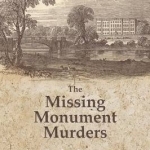
The Missing Monuments Murders
Book
In 1806, Jane Austen's relative, the Reverend Thomas Leigh, inherited huge estates and the mood in...
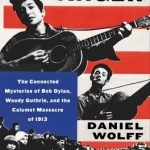
Grown-Up Anger: The Connected Mysteries of Bob Dylan, Woody Guthrie, and the Calumet Massacre of 1913
Book
A tour de force of storytelling years in the making: a dual biography of two of the greatest...
Heather Cranmer (2721 KP) created a post
Nov 3, 2020
Mark @ Carstairs Considers (2474 KP) rated Triple Chocolate Cheesecake Murder in Books
Apr 23, 2021 (Updated Apr 23, 2021)
Murder in the Mayor’s Office
Easter is coming, and The Cookie Jar is awash in orders, keeping Hannah Swensen, her business partner Lisa, and the rest of their staff busy. But that doesn’t mean that Hannah doesn’t have time to help her sister Andrea when she calls in a panic. She’s just found Mayor Bascomb’s dead body in his office hours after having a very loud fight with him. The police wouldn’t be doing their job if they didn’t consider Andrea a suspect, so Hannah springs into action to figure out what really happened. Can she prove her sister is innocent?
I’ve been reading this long running series since the beginning, and I keep reading because I do enjoy catching up with the characters. If that is your reason for picking up the book, you’ll find they are as charming as always. I was pleased to see the soap opera of the previous few books has died down, and we see growth in a surprising direction in one character. Sadly, the love triangle is no closer to being resolved. The mystery is decent with enough suspects to keep us engaged. However, the focus is on the food. There is plenty of talk about food and how much the characters love what they are eating. With 24 new recipes for us to try, there is certainly plenty of new food to talk about. The dialogue is repetitious, an example of why realistic dialogue is better than real dialogue in a novel. While I still want to catch up with the characters, I find myself skimming the book instead of reading it closely. If you are like me and want to keep up with the characters, you’ll be glad you picked up this book. But if you haven’t started the series yet, you’ll want to go back to the beginning to find out why there are readers like me who still enjoy visiting the characters. And if you’ve given up on the series, you can safely skip this one.
I’ve been reading this long running series since the beginning, and I keep reading because I do enjoy catching up with the characters. If that is your reason for picking up the book, you’ll find they are as charming as always. I was pleased to see the soap opera of the previous few books has died down, and we see growth in a surprising direction in one character. Sadly, the love triangle is no closer to being resolved. The mystery is decent with enough suspects to keep us engaged. However, the focus is on the food. There is plenty of talk about food and how much the characters love what they are eating. With 24 new recipes for us to try, there is certainly plenty of new food to talk about. The dialogue is repetitious, an example of why realistic dialogue is better than real dialogue in a novel. While I still want to catch up with the characters, I find myself skimming the book instead of reading it closely. If you are like me and want to keep up with the characters, you’ll be glad you picked up this book. But if you haven’t started the series yet, you’ll want to go back to the beginning to find out why there are readers like me who still enjoy visiting the characters. And if you’ve given up on the series, you can safely skip this one.
Kristy H (1252 KP) rated Cut to the Bone in Books
Aug 6, 2020
I absolutely love the Sayer Altair series and book three didn't disappoint one bit. What is not to love about an incredibly intelligent kickass black FBI agent who takes no prisoners? While Sayer lost her FBI agent fiancé, Jake, several years ago--something she's still reeling from--she's now surrounded herself by her own makeshift family: Adi; her neighbor, Tino; and Ezra. And, of course, there's her witty and tough grandmother, Nana, who raised Sayer. Coming back to this crew as a reader feels like returning to family. Cooper excels at capturing each character's unique voice, and I'm so fond of them all. We even get an appearance from Sayer's former boss, Holt, who has been kicked out of the FBI in a scandal covered in the previous books.
The mystery plot here is a really wild but totally engaging case. There are lots of references to Egypt and plenty to keep you on your toes. It is a tense and suspenseful tale and Cooper throws in plenty of well-timed twists and turns. The story turns personal for Sayer, and I was certainly riveted. Cooper writes in a quick, fast-paced style that makes it easy to keep flipping the pages.
All the books in this series are dark, and this one is no exception. They are not especially for the faint of heart. A lot of death and gruesome descriptions. It is easy to see that Cooper, who has a Ph.D. in anthropology and worked as a murder investigator, knows her stuff. For me, the authenticity just makes the story pop off the pages even more.
This book ends with a total boom for Sayer, and I cannot wait for the next installment. As I said, I love this series and adore Sayer and her little family. If you haven't read the entire series, I recommend starting with book one, but this one will standalone, especially if you love a twisty and engaging thriller. 4+ stars.
The mystery plot here is a really wild but totally engaging case. There are lots of references to Egypt and plenty to keep you on your toes. It is a tense and suspenseful tale and Cooper throws in plenty of well-timed twists and turns. The story turns personal for Sayer, and I was certainly riveted. Cooper writes in a quick, fast-paced style that makes it easy to keep flipping the pages.
All the books in this series are dark, and this one is no exception. They are not especially for the faint of heart. A lot of death and gruesome descriptions. It is easy to see that Cooper, who has a Ph.D. in anthropology and worked as a murder investigator, knows her stuff. For me, the authenticity just makes the story pop off the pages even more.
This book ends with a total boom for Sayer, and I cannot wait for the next installment. As I said, I love this series and adore Sayer and her little family. If you haven't read the entire series, I recommend starting with book one, but this one will standalone, especially if you love a twisty and engaging thriller. 4+ stars.
BookishWoo (317 KP) rated Lost in Plain Sight in Books
Jun 3, 2020
I freaking loved this! Yes you heard right, if I could sum my review up in 4 simple words that would be exactly what I would write!
So what made this so good I hear you ask?
For starters, Alan managed to bring 2 of my favourite genres together and it just worked, so well. From the 1st page I was sold, it reeled me in and didn’t let go. This was a book I could really sink my teeth into.
Told in multiple POV’s, which trust me when I say it doesn’t always work and you can easily get lost and have to go back on yourself, I can honestly say this flowed with absolute ease. Each Chapter is told by a one of the main Character’s and you know straight away whose POV you are reading as it’s a chapter heading. The main characters are relatable, quirky and I loved getting to know them.
This was really was well written and Alan is very descriptive when setting a scene. As this is not set in a fictitious world and set in Brighton, you can truly imagine yourself there, especially if you know the area well. This is one of the main reasons I loved this so much. As a fantasy lover, I am used to world building and imaginary places, but having the story set in a actual place with the fantasy element running alongside, was refreshing. Everything is there for fantasy fans…..magic, demons, fae folk, The list goes on. For thriller fans there is murder, mystery and an engaging plot.
All in all this had everything to keep me enthralled and not forgetting it had me laughing out loud in places, Alan clearly has a wicked sense of humour which clearly shines through in his writing.
I received Lost In Plain Sight by Alan Camrose for free in exchange for an honest review as part of a blog tour for Love Books Tours
So what made this so good I hear you ask?
For starters, Alan managed to bring 2 of my favourite genres together and it just worked, so well. From the 1st page I was sold, it reeled me in and didn’t let go. This was a book I could really sink my teeth into.
Told in multiple POV’s, which trust me when I say it doesn’t always work and you can easily get lost and have to go back on yourself, I can honestly say this flowed with absolute ease. Each Chapter is told by a one of the main Character’s and you know straight away whose POV you are reading as it’s a chapter heading. The main characters are relatable, quirky and I loved getting to know them.
This was really was well written and Alan is very descriptive when setting a scene. As this is not set in a fictitious world and set in Brighton, you can truly imagine yourself there, especially if you know the area well. This is one of the main reasons I loved this so much. As a fantasy lover, I am used to world building and imaginary places, but having the story set in a actual place with the fantasy element running alongside, was refreshing. Everything is there for fantasy fans…..magic, demons, fae folk, The list goes on. For thriller fans there is murder, mystery and an engaging plot.
All in all this had everything to keep me enthralled and not forgetting it had me laughing out loud in places, Alan clearly has a wicked sense of humour which clearly shines through in his writing.
I received Lost In Plain Sight by Alan Camrose for free in exchange for an honest review as part of a blog tour for Love Books Tours
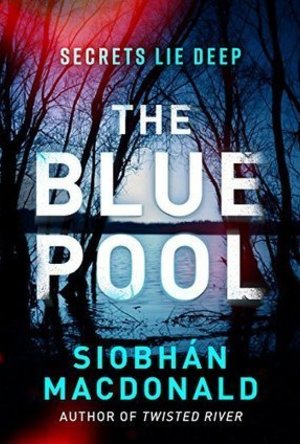
The Blue Pool
Book
What really happened that weekend? Four friends go to a remote cabin one summer. Only three return....
